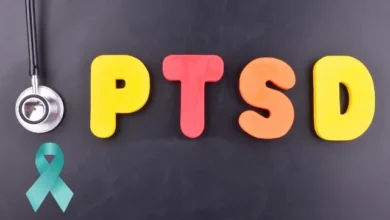Understanding Dementia: Symptoms, Causes, and Prevention
A Comprehensive Guide to Managing Memory Loss and Cognitive Decline
Dementia, also known as memory loss, is a syndrome associated with various disorders affecting the brain. This condition can impair memory, speech, and even routine thinking processes. For instance, individuals with dementia may forget daily routines and struggle to plan future actions.
What is Dementia?
Dementia is a syndrome linked to various brain disorders. It can affect stored memories, speech, and routine thought processes. Individuals with dementia may forget various things, leading to difficulties in daily tasks and routines, and even upcoming events.
Global Statistics on Dementia
According to current global statistics, dementia is the fifth leading cause of death. Every four seconds, someone is diagnosed with this condition. A BBC report predicts that by 2030, approximately 900,000 people in Bangladesh alone could be affected by dementia.
Geographical Distribution of Dementia (in millions)
- Europe: 9.95%, projected to increase to 19.95% by 2030.
- America: 7.82%, projected to increase to 14.78% by 2030.
- Africa: 1.86%, projected to increase to 8.74% by 2030.
- Asia: 15.94%, projected to increase to 33.04% by 2030.
Symptoms of Dementia
Dementia can manifest in various ways, including:
- Hallucinations
- Difficulty in planning
- Impaired decision-making
- Anxiety
- Depression
- Disregard for manners
- Impulsive behavior
- Selfishness
- Difficulty recalling names
- Confusion and disorientation
In the early stages, individuals may forget minor details or recent events. They might repeatedly ask the same questions. As the condition progresses, finding words becomes challenging, leading to pauses in speech. Routine tasks may be forgotten, and familiar routes may become unfamiliar. Mood swings, depression, anxiety, and identity crises can also occur.
Detailed Symptoms and Their Impact
Hallucinations
Hallucinations can be visual, auditory, or even tactile. Individuals may see, hear, or feel things that are not present, leading to confusion and fear.
Planning Difficulty
Difficulty in planning can affect daily activities, such as managing finances, organizing tasks, or even planning meals. This can lead to a significant decline in the quality of life.
Decision-Making
Impaired decision-making can result in poor judgment, affecting financial decisions, personal safety, and overall well-being.
Anxiety and Depression
Anxiety and depression are common in individuals with dementia. These mental health issues can exacerbate cognitive decline and affect overall mood and behavior.
Disregarding Manners
Disregarding social norms and manners can lead to inappropriate behavior, causing social isolation and strain on relationships.
Impulsive Behavior
Impulsive behavior can result in reckless decisions, such as overspending, engaging in risky activities, or making impulsive purchases.
Selfishness
Increased selfishness can strain relationships, as individuals may prioritize their needs over others, leading to conflicts and misunderstandings.
Difficulty Recalling Names
Forgetting names can be embarrassing and frustrating, affecting social interactions and relationships.
Confusion and Disorientation
Confusion and disorientation can make it difficult to navigate familiar environments, leading to feelings of helplessness and anxiety.
Stages of Dementia
Dementia can be categorized into four stages:
- Mild Cognitive Impairment
- Mild Alzheimer’s
- Moderate Alzheimer’s
- Severe Impairment
These stages progress sequentially as the disease advances. The severe impairment stage is particularly debilitating, as individuals may lose their communication abilities entirely and require full-time care.
Detailed Description of Each Stage
Mild Cognitive Impairment
In this stage, individuals may experience minor memory lapses, such as forgetting recent conversations or misplacing items. They may still function independently but may require reminders for tasks.
Mild Alzheimer’s
In the mild Alzheimer’s stage, memory loss becomes more pronounced. Individuals may struggle with complex tasks, such as managing finances or planning events. They may also experience mood swings and personality changes.
Moderate Alzheimer’s
In the moderate stage, individuals may require assistance with daily activities, such as dressing, bathing, and eating. They may also experience increased confusion, disorientation, and behavioral changes.
Severe Impairment
In the severe impairment stage, individuals may lose the ability to communicate effectively and require full-time care. They may also experience incontinence and require assistance with all daily activities.
Types of Dementia
Dementia can be classified into four main types:
- Alzheimer’s (50% – 75%): Characterized by protein deficiency leading to brain cell damage and shrinkage.
- Vascular (20% – 30%): A mixed type of dementia.
- Lewy Body (10% – 25%): Caused by abnormal deposits in the brain.
- Frontotemporal (10% – 15%): Affects the frontal and temporal lobes of the brain.
Detailed Description of Each Type
Alzheimer’s Disease
Alzheimer’s disease is the most common type of dementia, accounting for 50% to 75% of all cases. It is characterized by the accumulation of abnormal proteins in the brain, leading to brain cell damage and shrinkage.
Vascular Dementia
Vascular dementia is caused by reduced blood flow to the brain, often due to strokes or other vascular conditions. It can affect cognitive functions, such as memory, language, and problem-solving skills.
Lewy Body Dementia
Lewy body dementia is characterized by the presence of abnormal protein deposits, known as Lewy bodies, in the brain. It can cause symptoms similar to Alzheimer’s and Parkinson’s disease, including cognitive decline, movement disorders, and visual hallucinations.
Frontotemporal Dementia
Frontotemporal dementia affects the frontal and temporal lobes of the brain, which are responsible for language, behavior, and personality. It can cause significant changes in behavior, language skills, and personality traits.
Causes and Diagnosis of Dementia
Several factors contribute to dementia, including brain injuries, tumors, strokes, and neurological issues. Age is a significant risk factor, with the condition being more prevalent in individuals over 50. Diagnosis can be confirmed through blood tests, brain CT scans, cognitive dementia tests, and mini-mental state examinations.
Detailed Causes and Diagnostic Methods
Brain Injuries
Brain injuries, such as concussions or traumatic brain injuries, can increase the risk of dementia. These injuries can cause long-term damage to brain cells, leading to cognitive decline.
Brain Tumors
Brain tumors can compress or damage brain tissue, leading to cognitive impairment and dementia. Early detection and treatment of brain tumors can help prevent or delay the onset of dementia.
Strokes
Strokes can cause vascular dementia by reducing blood flow to the brain. Managing risk factors for strokes, such as high blood pressure, high cholesterol, and diabetes, can help prevent vascular dementia.
Neurological Issues
Neurological issues, such as Parkinson’s disease, Huntington’s disease, and multiple sclerosis, can increase the risk of dementia. Early diagnosis and management of these conditions can help slow the progression of dementia.
Diagnostic Methods
Diagnostic methods for dementia include:
- Blood Tests: Blood tests can help rule out other conditions that may cause similar symptoms, such as thyroid problems or vitamin deficiencies.
- Brain CT Scans: Brain CT scans can help identify structural abnormalities in the brain, such as tumors, strokes, or brain injuries.
- Cognitive Dementia Tests: Cognitive dementia tests, such as the Mini-Mental State Examination (MMSE), can help assess cognitive function and memory.
- Neuropsychological Tests: Neuropsychological tests can help evaluate specific cognitive functions, such as language, memory, and problem-solving skills.
Preventing Dementia
Smoking and alcohol consumption can accelerate the progression of dementia. Avoiding these habits and undergoing regular therapy or medication can help control the damage. However, a complete cure for dementia is currently not available.
Lifestyle Changes to Prevent Dementia
Healthy Diet
A healthy diet rich in fruits, vegetables, whole grains, and lean proteins can help reduce the risk of dementia. Foods high in antioxidants, such as berries, leafy greens, and nuts, can help protect brain cells from damage.
Regular Exercise
Regular exercise can help improve blood flow to the brain, reduce inflammation, and promote the growth of new brain cells. Aim for at least 30 minutes of moderate-intensity exercise most days of the week.
Mental Stimulation
Engaging in mentally stimulating activities, such as reading, puzzles, or learning new skills, can help keep the brain active and reduce the risk of cognitive decline.
Social Interaction
Maintaining social connections and engaging in social activities can help reduce the risk of dementia. Social interaction can help stimulate the brain, reduce stress, and improve overall well-being.
Managing Chronic Conditions
Managing chronic conditions, such as high blood pressure, high cholesterol, and diabetes, can help reduce the risk of dementia. Regular check-ups and following a healthy lifestyle can help manage these conditions effectively.
FAQs
What are the early signs of dementia?
Early signs of dementia include forgetting recent events, repeating questions, and difficulty finding words.
How is dementia diagnosed?
Dementia is diagnosed through a combination of blood tests, brain scans, cognitive tests, and mental state examinations.
Can dementia be cured?
Currently, there is no cure for dementia, but treatments can help manage symptoms and slow progression.
What are the risk factors for dementia?
Risk factors include age, brain injuries, tumors, strokes, and neurological issues. Lifestyle factors like smoking and alcohol consumption can also increase the risk.
How can dementia be prevented?
While there is no guaranteed prevention, maintaining a healthy lifestyle, avoiding smoking and excessive alcohol, and managing underlying health conditions can help reduce the risk.
Conclusion
Dementia is a complex and challenging condition that affects millions worldwide. Understanding its symptoms, stages, and prevention methods can help individuals and caregivers better manage this condition. If you have more information or personal experiences to share, please leave a comment below. Your insights could be invaluable to others facing similar challenges.









